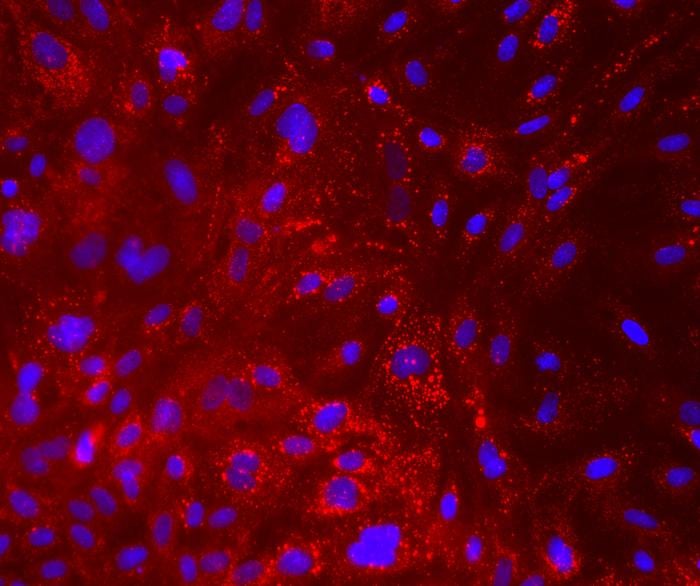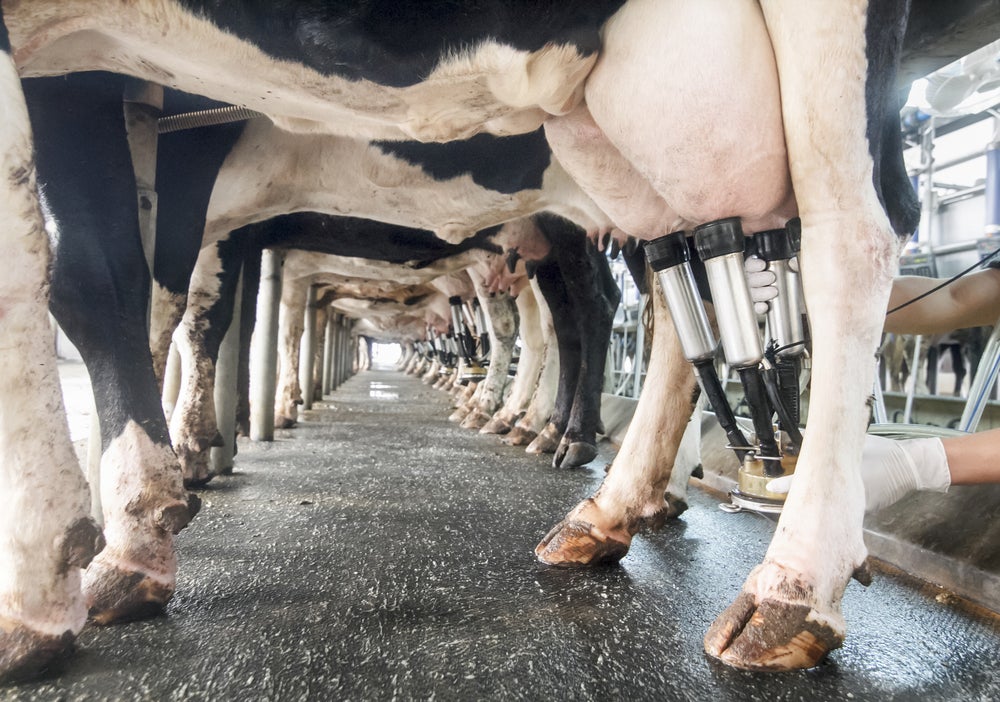DAILY Bites
-
Mesenchymal stem cells and their secretome protect dairy cow mammary cells from inflammation and cellular stress.
-
MSCs naturally enhance lipogenesis, increasing the fat content of milk without additives or direct cell contact.
-
This approach supports animal resilience during high lactation, promoting both welfare and richer, more nutritious milk.
DAILY Discussion
Modern dairy cows are milk-producing powerhouses — some yielding over 50 Kg worth of milk a day. But all that productivity comes at a price: Their mammary glands often suffer from inflammation and cellular stress, which not only reduces milk quality but also affects the cows’ well-being.
Now, researchers at the Hebrew University of Jerusalem have found a surprising solution in stem cells — and in the powerful molecules they secrete. The new study shows that mesenchymal stem cell and their secretions can help protect mammary cells from stress while boosting milk fat production. The findings, published in Stem Cell Research & Therapy, point to a future of more resilient cows and richer, healthier milk.
The study, led by at team at the university’s Robert H. Smith Faculty of Agriculture, Food and Environment, investigated how MSCs and their “secretome” — the suite of signaling molecules they release — affect bovine mammary epithelial cells.
When these stem cells or their secretions were introduced to milk-producing cells in the lab, the researchers observed two key effects:
“This is the first time anyone has shown the lipogenic effect of stem cells” said research associate Dr. Roni Tadmor-Levi. “Beyond the stress-reducing effect that was observed, in all tested conditions MSCs or even just their “secretome” induced an increase in lipogenesis”
High milk production places enormous strain on a cow’s body, often leading to chronic inflammation and diseases like mastitis, which reduce both yield and welfare.

By calming stressed cells and helping them maintain fat production, MSC-derived factors could play a critical role in improving both milk production, quality and animal health. Even more promising: these effects were achieved without direct contact between cells — meaning the helpful molecules could potentially be harvested and delivered through a feed additive or supplement.
“Milk fat isn’t just about creaminess — it’s a key source of energy, fat-soluble vitamins like A and D, and essential fatty acids,” said Professor Nurit Argov-Argaman. “Boosting fat content naturally can make milk more nutritious without additives or heavy processing.”
This research could signal a major advance in precision dairy management — using natural bioactive compounds to support animal resilience during intense lactation periods.
“This is about more than boosting yield,” said Argov-Argaman. “It’s about protecting the cow’s health and making better milk for everyone. We’re using biology to work with the cow’s system —not against it.”
The study was partially funded by Wilk Technologies and is part of a broader effort to combine cutting-edge stem cell science with sustainable agricultural innovation.


